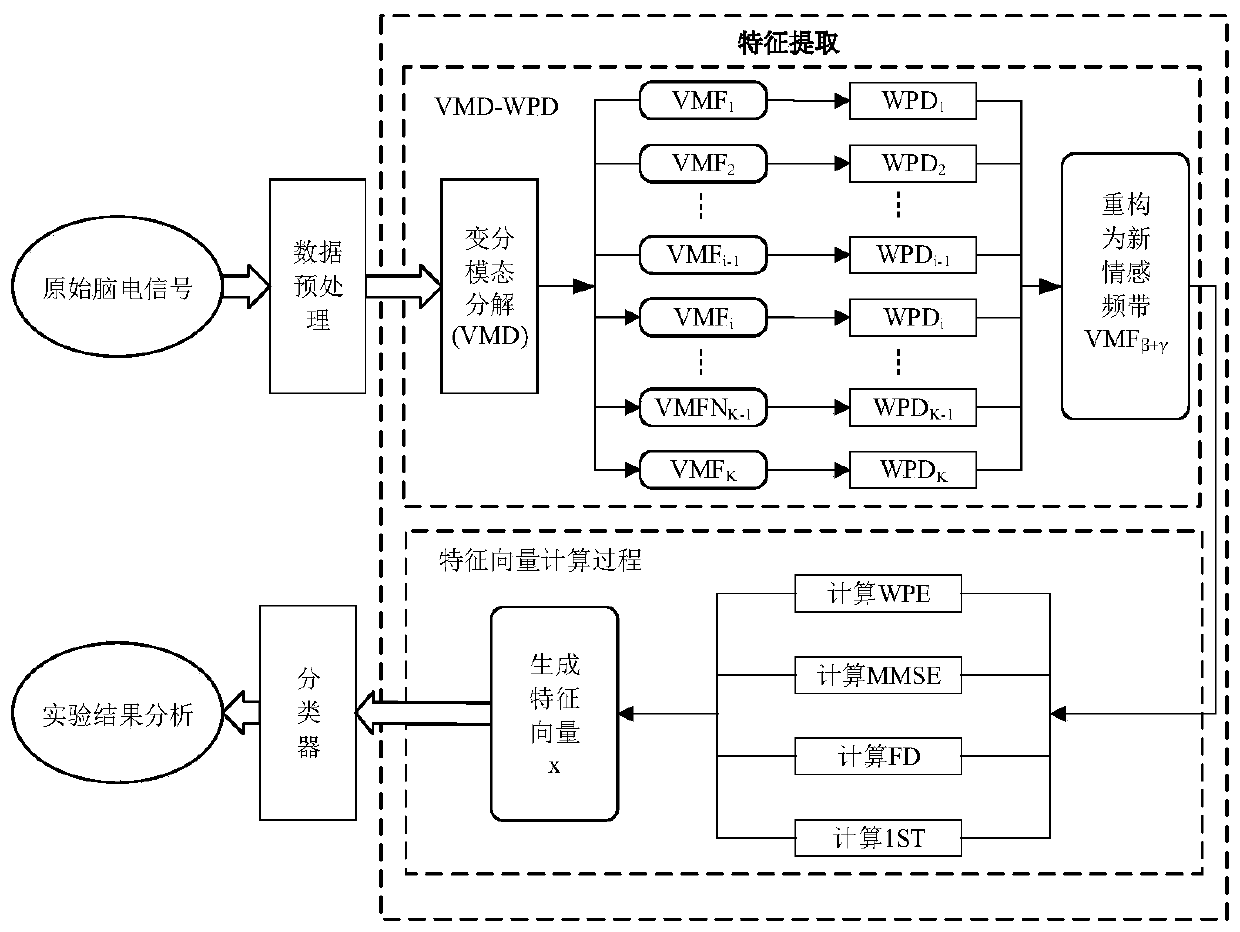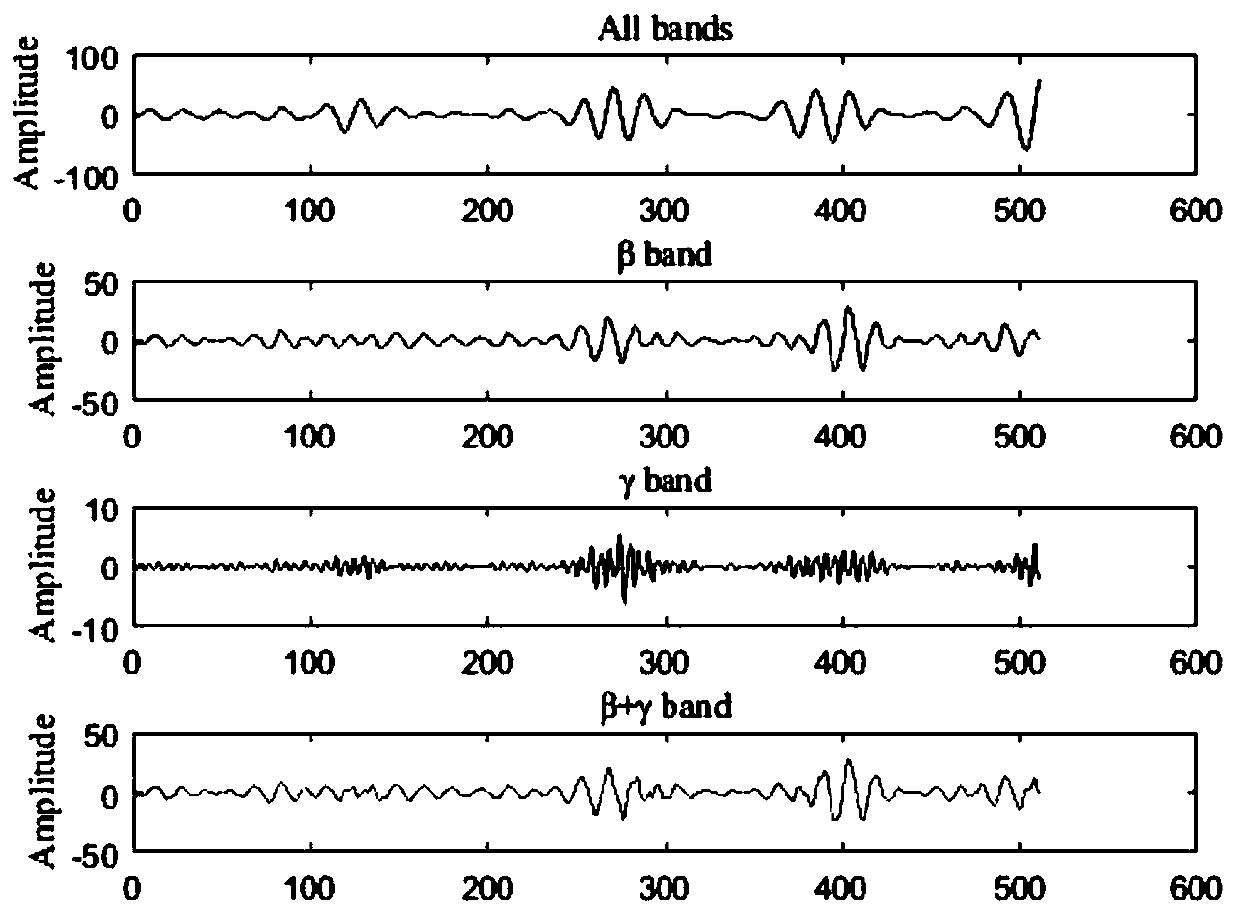Electroencephalogram signal emotion recognition method and system based on VMD and WPD
An EEG signal and emotion recognition technology, applied in the field of emotion recognition, can solve the problem of feature extraction in the field of emotion recognition without application, and achieve the effect of large time-frequency resolution
- Summary
- Abstract
- Description
- Claims
- Application Information
AI Technical Summary
Problems solved by technology
Method used
Image
Examples
Embodiment 1
[0064] This disclosure firstly provides a multi-dimensional feature extraction method based on VMD and WPD, such as figure 1 Shown mainly includes the following processes:
[0065] Step S1: Obtain data from the emotional EEG data set, and preprocess the data;
[0066] Step S2: Perform VMD decomposition on the preprocessed EEG signal, and decompose to obtain VMF;
[0067] Step S3: Perform WPD on VMF to obtain VMF β+γ ;
[0068] Step S4: Extract VMF β+γ The WPE, MMSE, FD and 1ST form the emotional feature vector x;
[0069] Step S5: Send the feature vector x into the random forest classifier to identify the emotional state.
[0070] The multi-dimensional feature extraction algorithm based on VMD and WPD proposed in this disclosure can be described as:
[0071]
[0072]
[0073] In step S1 of this embodiment, this disclosure uses the internationally published multi-modal emotion data set DEAP, using the data of the MATLAB version that has been down-sampled and electro...
Embodiment 3
[0159] The present disclosure provides a VMD and WPD-based EEG signal emotion recognition system, including:
[0160] The variational mode decomposition module is configured to perform variational mode decomposition on the obtained EEG signal data to obtain a variational mode component;
[0161] The reconstruction module is configured to perform wavelet packet decomposition and reconstruction on the variational modal components to obtain reconstructed signals in the β and γ frequency bands in the EEG signal frequency band;
[0162] The feature vector composition module is configured to separately calculate the wavelet packet entropy of the reconstructed signal, the improved multi-scale sample entropy, the fractal dimension and the first-order difference value, and form the feature vector for the emotional recognition of the EEG signal;
[0163] The classification and recognition module is configured to send the feature vector into the classifier for classification and recognitio...
Embodiment 4
[0167] The present disclosure provides a computer-readable storage medium, which is characterized in that it is used to store computer instructions, and when the computer instructions are executed by a processor, the steps described in a VMD- and WPD-based EEG signal emotion recognition method are completed.
PUM
 Login to View More
Login to View More Abstract
Description
Claims
Application Information
 Login to View More
Login to View More - R&D
- Intellectual Property
- Life Sciences
- Materials
- Tech Scout
- Unparalleled Data Quality
- Higher Quality Content
- 60% Fewer Hallucinations
Browse by: Latest US Patents, China's latest patents, Technical Efficacy Thesaurus, Application Domain, Technology Topic, Popular Technical Reports.
© 2025 PatSnap. All rights reserved.Legal|Privacy policy|Modern Slavery Act Transparency Statement|Sitemap|About US| Contact US: help@patsnap.com



